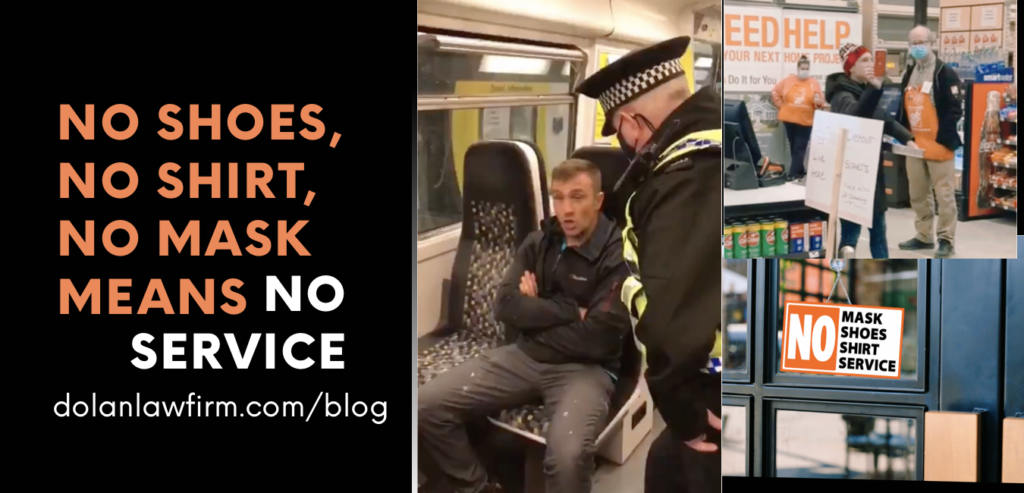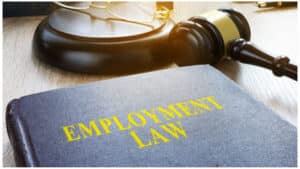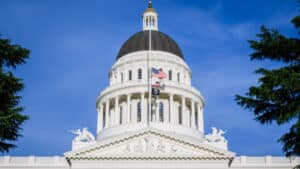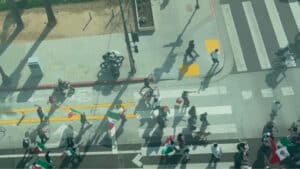Written By: Christopher Dolan and Lourdes De Armas
Back in the 1970s there was the public outrage when businesses first placed signs on their doors saying, “No shirt, no shoes, no service.” This was a response by businesses to keep the long-haired hippies out of their stores and restaurants. There was no state or federal mandate. Many thought businesses were trampling on their civil rights by telling them what they could or could not wear. But businesses have a right to set their own rules for service. The right to refuse service is now an accepted norm as is the phrase.
Similar reactions were heard in the ’80 when California enacted a variety of laws. In 1984, California Supreme Court unanimously upheld a mandatory auto insurance law requiring motorists stopped for traffic violations to prove they have liability coverage or eventually face losing their licenses. Two years later, California’s first seat belt laws took effect on January 1, 1986, and required both drivers and passengers to wear seat belts. It is also a state law that motorcycle riders under age 18 must wear helmets.
Even in the face of scientific studies showing that seatbelt and helmets save lives, there was the outcry of “the government” interfering with your lives.
Still if you are driving a car and have no proof of insurance, you are not exposing anyone to anything lethal. If someone passes you riding a motorcycle without a helmet, their risk exposure is greater than yours- the same for no wearing a seatbelt.
Now, a whole lifetime later, we buckle up as soon as we sit down in a vehicle, make sure that our kids are wearing helmets, and do not dare drive without insurance. We would not even think about walking into a store with bare feet and no shirt on. All of these have become second nature. No personal liberties have been affected and no one has been hurt by following the rules.
Until the pandemic, we gave little thought to “No shirt, no shoes, no service.” The same should be for masks. Businesses have the right to refuse service to those that refuse to enter without masks. Although it is understandable that culturally, the U.S. wasn’t really prepared to wear masks, unlike some countries in Asia where the practice is more common- it has been almost a year since the pandemic paralyzed the nation and wearing a mask should be second nature. Yet, we are still having this debate.
Mask compliance has become a political issue instead of a health issue despite the evidence. “This is a life-and-death issue. Masks, physical distance and hand-washing are the three things we have to reduce the spread of the virus in the absence of a vaccine”, according to Dr. David Abrams, NYU School of Global Public Health.
Both the Centers for Disease Control and Prevention (CDC) and the World Health Organization recommend masks for the general public. Keeping in line with the experts, California Department of Public Health issued face covering guidance in April 2020 that must be followed statewide.
Analysis of data from Johns Hopkins University, California ranked No. 1 among the states where coronavirus was spreading the fastest on a per-person basis. Still protests over wearing masks are now commonplace. As Dr. Abrams pointed out “There’s a certain bravado of being angry and defying requirements to wear a mask.”
- “Costco Karen,” for instance, staged a sit-in in a Costco entrance after she refused to wear a mask, yelling “I am an American … I have rights.”
- An unruly crew marched through Target yelling “Take off your masks, we are not going to take it anymore.”
- “Burn the Mask” protestors blocked the entrance of Trader Joe’s in Fresno to causing the store to close early.
- A protestor at a Ralph’s in Los Angeles called a shopper wearing a mask a “mask Nazi.”
- In a mall in Century City, anti-mask protesters tried to force their way into several stores causing workers to be barricade themselves inside stores to keep out protesters.
Despite the protestations, wearing a mask just like wearing seat belts, shoes and a shirt, does not violate your rights. The government has a right to enact laws to protect the health and safety of the public. That is the quintessential role of the government.
To the extent that protestors object that masks violate their right to liberty (“my body, my choice”), they should direct their attention to Jacobson vs. Massachusetts (1905) 197 U.S. 11, the Supreme Court upheld the state’s smallpox vaccination requirement. The case has not been overturned. The case clearly explains why mask mandates do not violate any constitutional right to privacy, health, or bodily integrity. The court ruled that the requirement didn’t violate Jacobsen’s right to liberty or “the inherent right of every freeman to care for his own body and health in such way as to him seems best.” The court added that “[t]here are manifold restraints to which every person is necessarily subject for the common good. On any other basis, organized society could not exist with safety to its members.”
The case makes it clear that the ideals of limited government do not absolve us of our social obligation to protect each other. Simply put, we do not have a constitutional right to infect others.
For now, masks are necessary. Common sense suggests that If there is no choice, we will wear masks. We all will be safer if businesses work together to make “No Shirt, No Shoes, No Masks, No Service” the norm in California.










